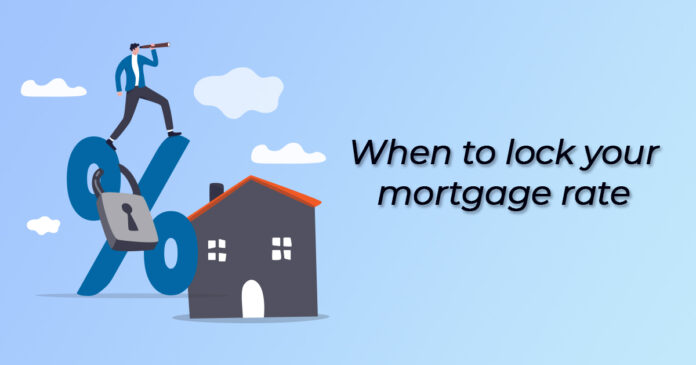BY ANNA & MICHELLE
Locking your interest rate protects you from increases due to market conditions. Locking early safeguards your budgeted payment. By locking the rate, if the market goes up, you get the lower rate; if it goes down after the lock, you may be able to pay a fee and lower the rate.
Knowing when to take the lock is determined by which direction you think the market is going. If you think rates are going up, lock in early. If you think rates are going down, ride the rate to within a few days of closing.
Some lenders may allow a borrower to lock a rate after pre-approval but it is more common to not offer a lock until there is a signed contract on a home. Even with a pre-approval, it could easily take 30 days or more to close a transaction and the rates can move a lot in that period.
There may be a fee charged to lock a rate, which is determined by the lender. Generally, the longer the time for the rate lock, the higher the fee.
There is a lock period established by the lender that guarantees the rate, if the loan is closed by the expiration date. Normal lock periods can be between 30 to 60 days. Longer periods may be available but will probably require higher fees.
Things that could affect your rate lock are:
⦁ The appraised value comes in lower than what was expected in the sales contract.
⦁ The borrowers’ credit changes considerably before the closing.
⦁ The loan amount changes after the rate lock.
⦁ The loan type changes.
⦁ The down payment decreases before the closing.
⦁ Some income, like bonuses or overtime, could not be verified.
If a higher rate at closing means that you will no longer be able to qualify for the mortgage, it may be more important to lock in early. Looking at what the rates have done for the preceding weeks may indicate a trend but, at the same time, markets have turned overnight and started moving in the opposite direction.
A trusted mortgage professional can give you good advice and why they feel you should either lock the rate or let it ride. Your real estate agent can help also but, ultimately, the decision is yours.




